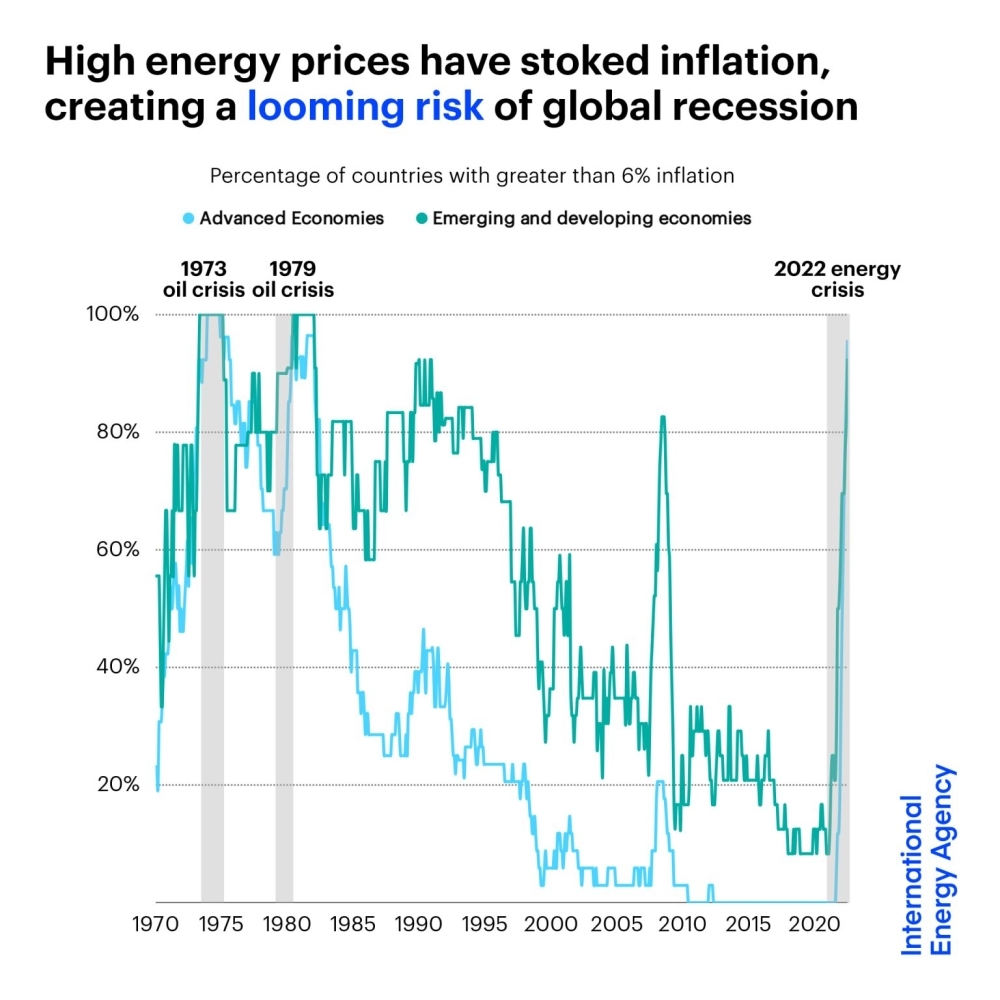Energy crisis: Shock of unprecedented breadth, complexity
The world is in the midst of its first global energy crisis – a shock of unprecedented breadth and complexity, the International Energy Agency (IEA) said in its latest World Energy Outlook.
“Pressures in markets predated Russia’s invasion of Ukraine, but Russia’s actions have turned a rapid economic recovery from the pandemic – which strained all manner of global supply chains, including energy – into full-blown energy turmoil,” the IEA said.
According to the IEA, prices for spot purchases of natural gas have reached levels never seen before, regularly exceeding the equivalent of US$250 for a barrel of oil. Coal prices have also hit record levels, while oil rose well above US$100 per barrel in mid-2022 before falling back. High gas and coal prices account for 90% of the upward pressure on electricity costs around the world.
“The crisis has stoked inflationary pressures and created a looming risk of recession, as well as a huge US$2 trillion windfall for fossil fuel producers above their 2021 net income.
“Higher energy prices are also increasing food insecurity in many developing economies, with the heaviest burden falling on poorer households where a larger share of income is spent on energy and food,” the agency said.
The IEA continued: “Some 75 million people who recently gained access to electricity are likely to lose the ability to pay for it, meaning that for the first time since we started tracking it, the total number of people worldwide without electricity access has started to rise. And almost 100 million people may be pushed back into reliance on firewood for cooking instead of cleaner, healthier solutions.”
Namibia’s 2019/2021 census mapping, released by the Namibia Statistics Agency (NSA) this week, shows that more than half of surveyed households in Namibia use firewood to cook – nearly 88% in rural areas.
“Pressures in markets predated Russia’s invasion of Ukraine, but Russia’s actions have turned a rapid economic recovery from the pandemic – which strained all manner of global supply chains, including energy – into full-blown energy turmoil,” the IEA said.
According to the IEA, prices for spot purchases of natural gas have reached levels never seen before, regularly exceeding the equivalent of US$250 for a barrel of oil. Coal prices have also hit record levels, while oil rose well above US$100 per barrel in mid-2022 before falling back. High gas and coal prices account for 90% of the upward pressure on electricity costs around the world.
“The crisis has stoked inflationary pressures and created a looming risk of recession, as well as a huge US$2 trillion windfall for fossil fuel producers above their 2021 net income.
“Higher energy prices are also increasing food insecurity in many developing economies, with the heaviest burden falling on poorer households where a larger share of income is spent on energy and food,” the agency said.
The IEA continued: “Some 75 million people who recently gained access to electricity are likely to lose the ability to pay for it, meaning that for the first time since we started tracking it, the total number of people worldwide without electricity access has started to rise. And almost 100 million people may be pushed back into reliance on firewood for cooking instead of cleaner, healthier solutions.”
Namibia’s 2019/2021 census mapping, released by the Namibia Statistics Agency (NSA) this week, shows that more than half of surveyed households in Namibia use firewood to cook – nearly 88% in rural areas.




Kommentaar
Republikein
Geen kommentaar is op hierdie artikel gelaat nie